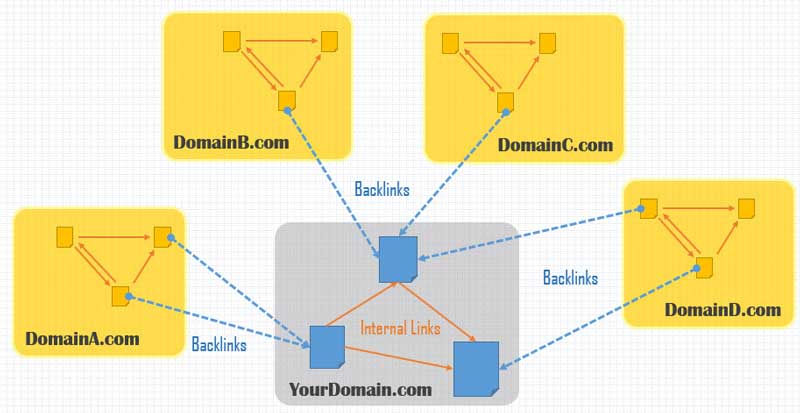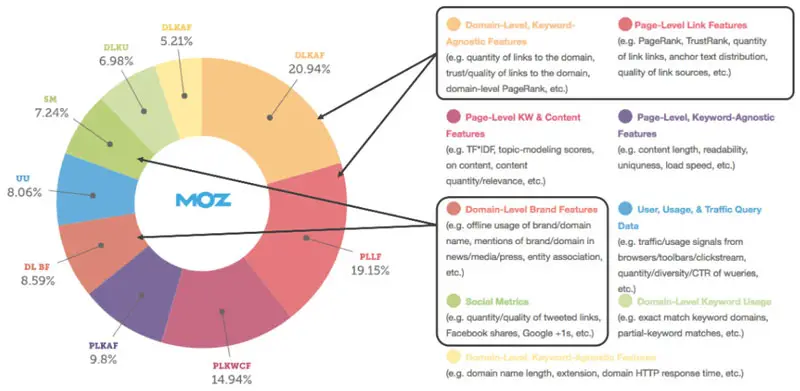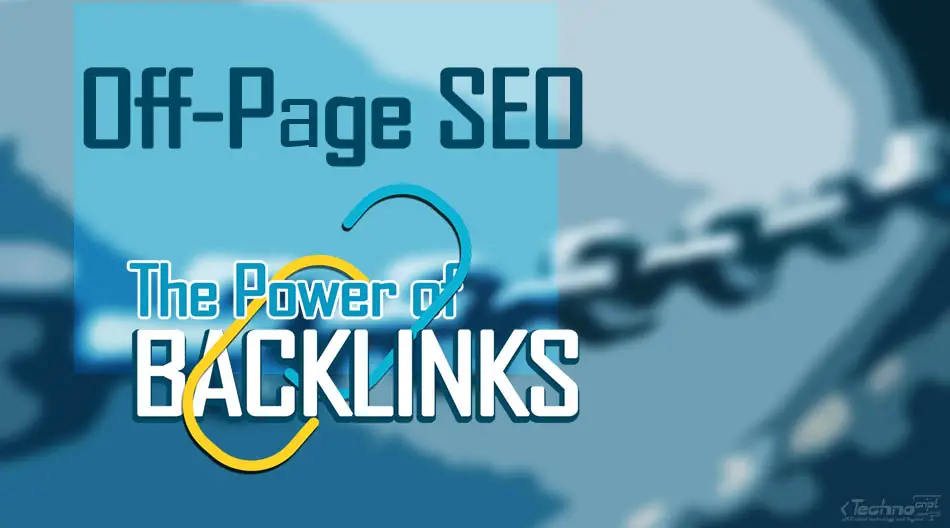Off-Page SEO techniques have tremendous effects on website ranking. Because of their strong relationship with most search engine algorithms.
Off-page practices such as link building and social media marketing have great potential to help websites climb up the search results pretty quickly.
1. Overview
According to most search engine algorithms, optimizing website content and utilizing internal enhancements are not the only factors to guarantee an advanced rank on search results pages.
Most times, websites rely on other domains to achieve higher rankings in search engines. It is mainly because search algorithms pay attention to links coming from other websites to determine the estimated rank of a webpage.
Hence, in the competition for a search phrase, the more high-quality links a webpage gets, the higher rank it achieves. Off-Page SEO techniques assist websites in being recognized by search engines.
2. The idea of Off-Page SEO Techniques
Compared to On-Page techniques, Off-Page SEO techniques are external activities taking place outside the webpage’s domain. In order to improve its ranking in search results.
The main idea behind Off-Page techniques is to exploit the algorithms that control search engines. Focusing on increasing page authority by seeking links and attention from others on the internet.
With that in mind, despite such techniques are basically implemented on other domains, it’s still the website authors’ role to obtain others’ trust by delivering high-quality and “linkable” content.
3. Off-Page SEO Techniques
Here are the most important Off-Page SEO techniques that impact the rank of the website.
3.1. Link Building (Backlinks)
Website backlinks are links pointing to pages on this website but located on pages on other websites. In the same context, link building is the process of generating backlinks to a website.
In other words, it is the process of accumulating trust and authority using original and well-created content in a way that attracts others to link back to it.
According to ahrefs, backlinks are perhaps the most critical part of off-page SEO.

As we mentioned in our previous article, web links are the fundamental aspects that keep everything on the web connected. They are the boats that allow visitors to surf over millions of linked pages. For these reasons, search engines keep relying on those links to determine how valuable the content is.
High-quality Backlinks
For search engines, it is always important to get quality and relevant links. It is pretty similar to when you get recommendations or references from a well-known party in a context close to your interest.
That being said:
We strongly don’t recommend any arbitrary activities that aim at the sole purpose of getting backlinks from other sites.
Practices such as backlinks purchasing, comment spamming, links exchanging, and publishing on hub pages, may mislead both search engines and visitors. In a way that, sooner or later, search engines will be able to capture them and penalize the participants in creating such fake links.
Accordingly, we should keep in mind that:
In any case, websites with high-quality and valuable content are more likely to get backlinks from other communities.
Consequently, the more quality content a website hosts, the better chance it gains to get referenced by others.
No-follow Backlinks
Technically speaking, No-Follow is a hidden attribute that can be added to a link telling search engines not to follow this link.
As a result, search engines don’t usually consider no-follow links and don’t pass any authority from the source page to the linked one.
Here is an example of a link with a no-follow relation attribute:
<a href="https://technocript.com/" rel="nofollow">Link text</a>On the other hand, Do-Follow links are the default type of links. It tells search engines to follow the link and pass the required ranking credits to the destination page.
Here is the same previous link with a default do-follow behavior:
<a href="https://technocript.com/">Link text</a>However, due to our understanding of the role of web linking in making the internet more valuable, we always recommend avoiding no-follow links. Except for specific cases that help eliminate spammy practices, such as links in comments, or unmoderated user-generated content.
Furthermore, when coming to google, there are other options that can be used to tell the objective of each link. So google can deal with it accordingly. Such as rel="sponsored" for advertisements and rel="ugc" for user-generated content.
<a href="https://technocript.com/" rel="nofollow">Link text</a>
<a href="https://technocript.com/" rel="sponsored">Link text</a>
<a href="https://technocript.com/" rel="ugc">Link text</a>3.2. Social Media Marketing
As Off-Page techniques work on gaining attention to the website, social media marketing is one of the most important aspects of Off-Page SEO.
Because most social media content is user-generated content, links coming from social networks are most likely no-follow links. Thus, they don’t pass ranking values.
That said, activities on social media don’t directly impact the search ranking. However, they help build close relationships with customers, keep them updated with the content, and open the doors to gaining new customers.
Thus, establishing and managing a social presence of the content can promote the website’s ranking. As social shares can lead to more backlinks to the content.
3.3. Brand Mentioning
Being the least effective Off-Page SEO technique, brand mentioning refers to mentioning and spreading the website across a variety of other resources on the internet. This includes for example blogs, forums, articles, reports, news, reviews, or social networks.
The main difference between brand mentioning and link building is that brand mentions might occur without having links to the website.
Although there is no evidence that brand mentioning has a direct impact on search engine ranking, there is an increased belief that search engines consider also name mentions without explicit links.
From our point of view, we really think that brand mentioning affects search ranking. As search engines work on estimating the actual value of the content in multiple ways, and based on both direct and indirect methods.
4. Final Thoughts
Although the majority of SEO efforts focus on On-Page SEO techniques, search engine algorithms deal with the issue from a completely different perspective.
According to a study by moz.com, results show that Off-Page SEO factors carry more than 50% of the ranking factor weight.

From our deep understanding of search engine algorithms, it is even more than 50%. Besides indexing and relevance, backlinks are one of the key concepts that most search engines were built upon.
With this in mind, whatever the On-Site techniques a website retains, its real value might be ignored without other websites linking to it.
Accordingly:
“Backlink” is the key concept across all search engine optimization techniques, this concept can’t be obtained without having original, quality, attractive, and valuable content.
In terms of link-building, here is our list of the top factors that contribute to the value of the backlink:
- Referring domains: the number of domains that link to the website with (do-follow) backlinks.
- Link authority: the quality (ranking weight) of referring domains.
- Anchor text: the relevance of the clickable text used to refer to the website.
- Relevance: the relevance of the linking domains to the website.
5. Conclusion
In this article, we discussed the concept of Off-Page SEO, by defining this term and outlining the most effective Off-Page SEO techniques.
However, we can conclude here that Off-page SEO is as important as On-Page SEO. Nevertheless, none of them will be effective in the absence of a quality content creation approach.

